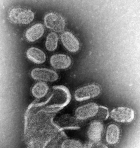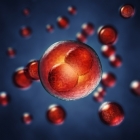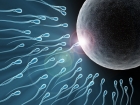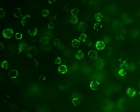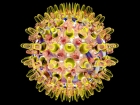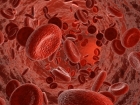Press monitoring
Reston ebolavirus spreads efficiently in pigs
30.12.2020 | Press monitoring
Reston ebolavirus (RESTV) should be considered a livestock pathogen with potential to affect other mammals, including people, according to National Institutes of Health scientists. Scientists found that experimental piglets infected with RESTV developed severe respiratory disease and shed the virus from the upper respiratory tract. RESTV can...
New gene family of antimicrobial proteins discovered in German cockroaches
28.12.2020 | Press monitoring
Researchers from The Institute for Integrative Systems Biology have discovered a new gene family of antimicrobial peptides (small proteins) – the Blattellicins – in a German cockroach (Blattella germanica). The study, published in the journal Scientific Reports, may help to understand how these insects can live in unsanitary environments and...
Genetic engineering without unwanted side effects helps fight parasites
25.12.2020 | Press monitoring
Modified CRISPR-Cas9 gene editing scissors are enabling researchers at the University of Zurich to make alterations to the genetic material of single-cell organisms that are indistinguishable from natural mutations. This method makes it possible to develop a harmless experimental live vaccine for the widespread parasite Toxoplasma gondii. Around...
Eight Proteins Turn Mouse Stem Cells into Egglike Cells
23.12.2020 | Press monitoring
The identification of the transcription factors that elicit oocyte growth will aid reproductive biology research and might help women with fertility issues, scientists say. A core set of eight proteins can transform stem cells from mice into cells that look a lot like immature egg cells called oocytes. The egglike cells could not undergo meiosis...
Scientists create a new phototoxic protein, SuperNova2
21.12.2020 | Press monitoring
Scientists from Skoltech, the Institute of Bioorganic Chemistry of RAS and the London Institute of Medical Sciences (LMS) have developed an enhanced version of SuperNova, a genetically encoded phototoxic synthesizer, that helps control intracellular processes by light exposure. An important research tool, phototoxic proteins are used as...
Researchers develop novel nanoparticle that efficiently and selectively kills cancer cells
18.12.2020 | Press monitoring
Many chemotherapeutic agents used to treat cancers are associated with side-effects of varying severity, because they are toxic to normal cells as well as malignant tumors. This has motivated the search for effective alternatives to the synthetic pharmaceuticals with which most cancers are currently treated. The use of calcium phosphate and...
Synthetic molecules mimic human cells to lure and kill the flu virus
16.12.2020 | Press monitoring
The influenza virus as proven to be a very tricky foe to fight. Now, researchers at EPFL in Switzerland have developed synthetic molecules that can kill the flu virus by mimicking human cells, and putting the squeeze on the virus when it attaches itself to the decoy. Current antiviral drugs, such as oseltamivir (or Tamiflu), work by attacking the...
Immunity-boosting silica nanoparticles could replace pesticides
14.12.2020 | Press monitoring
Pesticides may indeed kill plant pathogens, but they're also harmful to the environment. Newly developed nanoparticles may provide a more eco-friendly alternative, as they boost the immune systems of crop plants, then harmlessly dissolve. Occurring naturally in soil, a compound known as silicic acid has for some time been known to provoke...
Single gene therapy injection surprisingly boosts vision in both eyes
11.12.2020 | Press monitoring
This latest study was conducted by scientists at the University of Cambridge, the University of Pittsburgh and Paris’ Institut de la Vision, and focuses on a form of inherited vision loss called Leber hereditary optic neuropathy (LHON). This affects around one in 30,000 people and usually occurs in young folks aged in their 20s and 30s,...
New method to boost supply of life-saving stem cells
9.12.2020 | Press monitoring
Researchers at the Center for Genomic Regulation (CRG) in Barcelona and Columbia University in New York City have identified a protein that is critical for the expansion of typically scarce, life-saving blood stem cells. The discovery may lead to new methods for growing a large quantity of these stem cells, both inside and outside the human body,...
